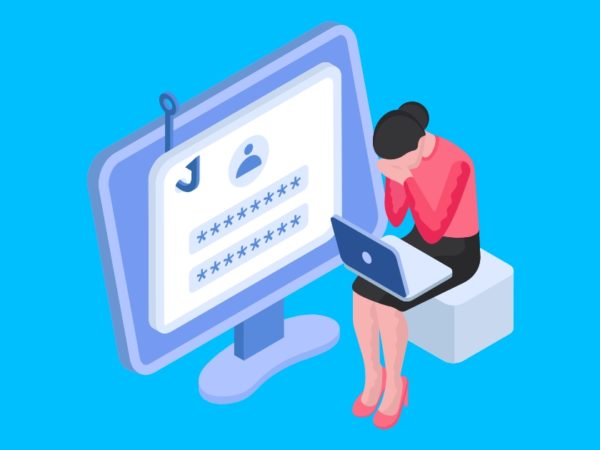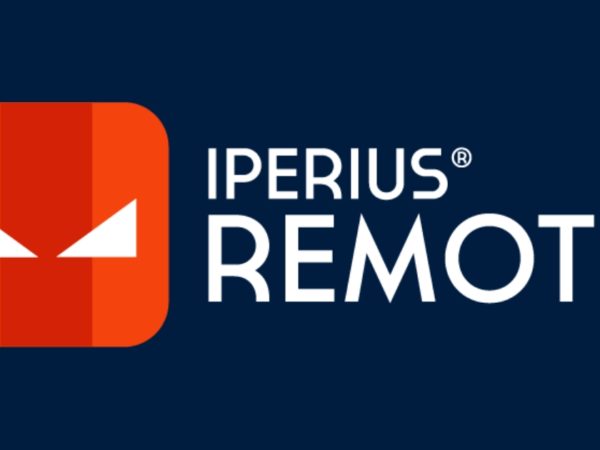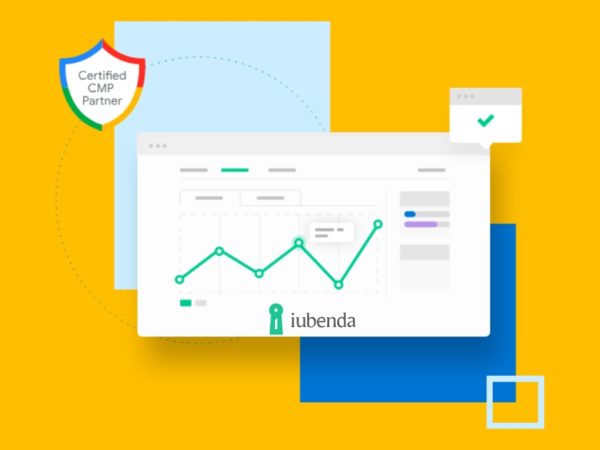It is okay to be conscious about your digital footprint when you do things online. It helps you to safeguard your data privacy rights. You are not alone in this quest, as the tools mentioned in this article can help you minimize your digital trace.
The Internet has become the marketing ground for digital marketing professionals. Businesses and digital marketers utilize every opportunity to monetize someone else’s data. Hence, your online privacy is at stake. Even with GDPR and other privacy laws in action, websites are collecting some sort of data that anyone can use to trace you.
The only option to uphold the right to privacy for anyone is to become your own cybersecurity expert. Continue reading to know more about the basics of digital footprints and some trending tools that experts use to reduce digital footprints.
A digital mark or footprint is tiny data that websites, advertisers, cyber security experts, and IT admins can use to trace back to your computer or your residential address.
The Internet, or Web 2.0, as we know it, works on a trust basis. As a user, you trust that the websites will follow a standard security protocol and privacy policy to save your digital trace from bad actors.
Hence, mostly, the websites sell your data to third parties who only use that footprint to offer you personalized ads. They never trace you back to your home to make a nuisance.
However, law enforcement and cyber security agencies can reach out to your in person if you involve yourself in any wrongdoings through the Internet. All these can happen due to a digital footprint.
Now, your digital footprint could be of the following two types:
This kind of digital imprinting of your online activities is taking place without your knowledge or consent. For example, a website owner has the full right to collect traffic data like country of origin, IP address, operating system, browser name, browser version, device model, etc. In most cases, such data do not affect you.
But, there are other types of passive digital tracing where advertisers use your social media activities, like comments, shares, likes, feelings, etc., to profile you and send personalized ads. Such profiling could influence your decision-making.
Sometimes, you actively or knowingly share your data with a website, mobile app, or web app in exchange for free services. For example, when you use Facebook or Twitter, you give the platform owners the right to monetize your data ethically.
Now, find below some online tools that help you stay anonymous online or reduce the digital footprint that you have already left so far:
Mine
Mine is an effortless web and mobile app to locate your online data instantly. You may have been using the Internet for ten years now, and it is impossible to remember all the data you have shared so far. Hence, you need to recruit Mine to scour through Web 2.0 and unearth everything about you. It discovers your data in <30 seconds.
The tool has a dashboard where you can get a complete picture of your digital footprint. If you feel everything is up to your standard, you can let the footprint be. However, if you find something negative, you can delete them instantly.
You can sign up for the app for free. During sign-up, the tool analyzes your profile and shows you a dashboard. Then, you can reclaim your data from companies by sending them direct emails.
Clean Email
<img alt="YouTube video" data-pin-nopin="true" data-src="https://kirelos.com/wp-content/uploads/2022/09/echo/hqdefault.jpg6332d601a034d.jpg" height="360" src="data:image/svg xml,” width=”480″>
Mailbox overload can be a potential cause for unrestricted sharing of personal data. When your email inbox is cluttered, you can not track which emails you should be replying to and which should not. Hence, you need the Clean Email tool.
You can use its email unsubscribe feature to opt-out of promotional email campaigns. Then, you can use its block email feature to restrict spammers and phishing emails.
When your email inbox is light and uncluttered, you can focus on your email replies and share less personal data. Therefore, Clean Email is an affordable option to reduce your digital footprint.
You can get started for just $9.99/month for one account and scale up to 5 accounts for $19.99/month and ten accounts for $29.99/month.
DeleteMe
<img alt="YouTube video" data-pin-nopin="true" data-src="https://kirelos.com/wp-content/uploads/2022/09/echo/hqdefault.jpg6332d601b1380.jpg" height="360" src="data:image/svg xml,” width=”480″>
If you find your personal information on Google, Bing, or Yahoo, it means some data mining companies are selling your data online. If you want to stop this practice and delete your data from the Internet, you need to try DeleteMe.
Its working process is pretty straightforward. You just sign up for a paid plan and submit minimal personal details. DeleteMe protects your data with maximum secrecy. Now, a team of DeleteMe digital footprint experts and researchers combs the Internet for data that relates to you.
Then, in approximately seven days, you get a Privacy report from DeleteMe with a detailed roadmap for data deletion. It does not stop here! DeleteMe team keeps tracking your data every three months and deletes them instantly.
Jumbo Privacy
<img alt="YouTube video" data-pin-nopin="true" data-src="https://kirelos.com/wp-content/uploads/2022/09/echo/hqdefault.jpg6332d601d6278.jpg" height="360" src="data:image/svg xml,” width=”480″>
Jumbo Privacy is a mobile app for digital footprint control from smartphones and websites. The mobile app just works like an intelligent virtual assistant to limit unrestricted personal data sharing or help you reduce already shared digital traces.
Jumbo Privacy constantly scans the world wide web to know if your data has been compromised or not. If yes, you get instant notifications so that you can deal with the issue. It also comes with ID theft or impersonation damages of up to $1 million. The best thing is it is a free app for iOS and Android devices.
Just Delete Me
Just Delete Me is a free directory of websites that might be monetizing or storing your data. You can access the help center or data privacy center of the websites to request the deletion of your data. You can email the website developers to remove your data if there are no direct contact options.
It hosts links to websites like Adobe, Amazon, Alibaba, Amazon AWS, Avast!, and so on. The process is simple for the green color-coded websites, moderately hard for yellow-colored websites, and extremely hard for red color-coded portals.
Incogni
Incogni assists you in dealing with data aggregator companies that collect your passive digital footprint. The platform is pretty simple to use. Just sign up for a paid account and leave everything to Incogni. Then, it will contact third-party data brokers with your data deletion requests.
However, this service comes for $11.49/mo or $5.79/mo when you go for the annual deal. You might want to note that its services are only available in the UK, the US, Switzerland, European Union, and Canada.
Most people who use the Internet say, “I have nothing to hide. So, why care that much?” Here are the reasons to take your digital footprint seriously:
Monetization of Your Data
IT companies are monetizing your, your neighbors, your office colleagues, your family members, and everyone else’s data who use the Internet. You may not relate to such data mining companies, but your data earn them a fortune. So, you might want to ask yourself, who is profiting at the end of the day?
Safeguarding Your Reputation
Someone with a vested interest may interpret your online actions negatively. For instance, an insurance company can come to the conclusion that you drive after drinking and may deny you insurance on your vehicle because they found an online trace that you have used your credit card to pay bills at a bar and for vehicle parking just after you visit that bar.
Your reputation is as simple as how society judges you. And trust this, people tend to make wrong interpretations of your online actions every time.
Avoid Financial Loss
Scamsters are always on the Internet trying to hack online databases of personal information like SSNs, driving license, internet banking, etc. If they could access such databases and find out about your likes and dislikes from Facebook, they could easily do an account password reset and rob you of your savings.
Certain credit card companies and credit insurers also consider other people’s digital footprint to assess your creditworthiness; For example, you charged your card in a place where most customers are credit card defaulters. You can easily expect a revised low credit limit for the upcoming months.
Avoid Mental Stress
You might get into many problems if you can not hold your fingers on social media from sharing personal experiences and beliefs. A game app you play with your family may start showing adult content as an advertisement in front of your family members. Such experiences are truly awkward and stressful.
Owning Your Personal Data
You may not want to share your medical data with your office colleagues. Or, you might not disclose your political beliefs to everyone. Again, you may want to keep your religious beliefs sacred and not disclose them to the public. But, when you enter such data online, there is a high chance some data collecting company will monetize such sensitive data.
Apart from private data aggregator businesses, the government collects public data to profile its citizens. Because Google, Microsoft, Facebook, Twitter, YouTube, Yahoo, and more share your online activities with the government without fuss.
Hence, when you share too much online, you relinquish your right to own your data.
Protecting Your Freedom
In many countries, the government is actively monitoring social media activities, WhatsApp chats, Messenger conversations, YouTube channels, and so on to reduce voice and activism against the government.
If your device or account somehow gets linked to certain activities that your government considers a threat to their existence, you may be in trouble or need to prove your innocence in front of the authorities.
Here are some ways that can help you minimize the digital trace online or make it zero:
- Create strong passwords for essential online services.
- Check with the service provider if they can respect your “Do Not Sell My Personal Information” request.
- Use a virtual private network (VPN) service to browse online.
- Ensure you have activated the Safe Browsing feature of Google Chrome or other browsers to stay away from data theft sites.
- An effective way is using any standard anti-tracking tool like DuckDuckGo, Privacy Badger, TrackOFF, etc.
- Log out from all websites and apps that you rarely use.
- Avoid accessing websites that show Facebook Like/Share buttons, Tweet buttons, etc.
- Try to make do with the software and apps that come with the device. When you download an app, you automatically give it some permissions to data collection.
- Try to deny cookies whenever you can.
- For less personalized ads, use the Brave browser.
Completely deleting your online trace from the Web 2.0 ecosystem is challenging. You may try these suggestions:
- Opt out from websites that function as digital data brokers.
- It is okay to create multiple emails to satisfy certain emergency needs. However, if you are not going to use all of these emails, it is good to delete these.
- Big IT companies like Google, Facebook, etc., offer the option to download a copy of your data and delete your profile forever from their servers. If you are leaving any of such platforms, do that in the first place.
- Ensure you delete tracers and cookies from your web browsers frequently.
- Delete your browsing activity from sites like Google, Facebook, Yahoo, Microsoft, etc.
- Use the Tor browser.
Internet Archive saves a copy of the web pages at regular intervals. It is essentially the version controlling system for the Internet. However, the Internet Archive abides by many stricter data protection policies. It is to ensure that individual users do not get hurt.
Internet Archive follows an elaborate Copyright Policy and Privacy Policy. It also has a Terms of Use. There, it states that it only shares data with third parties for research purposes, not for monetary gains. Hence, the Internet Archive moderately influences your digital imprints on the Internet.
Conclusion
When Web 2.0 was a new toy, you may have ignored a lot of data leakages. But, you now need to get in control of your data, or you will lose your decision-making power and freedom. You can use the abovementioned tools to reduce your digital footprint data and stay invisible online.



